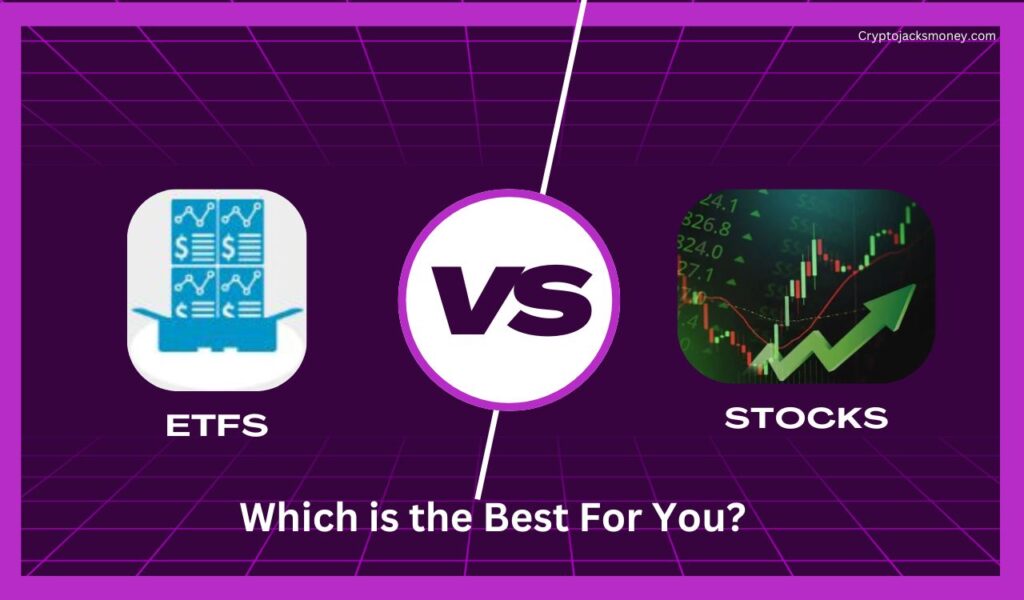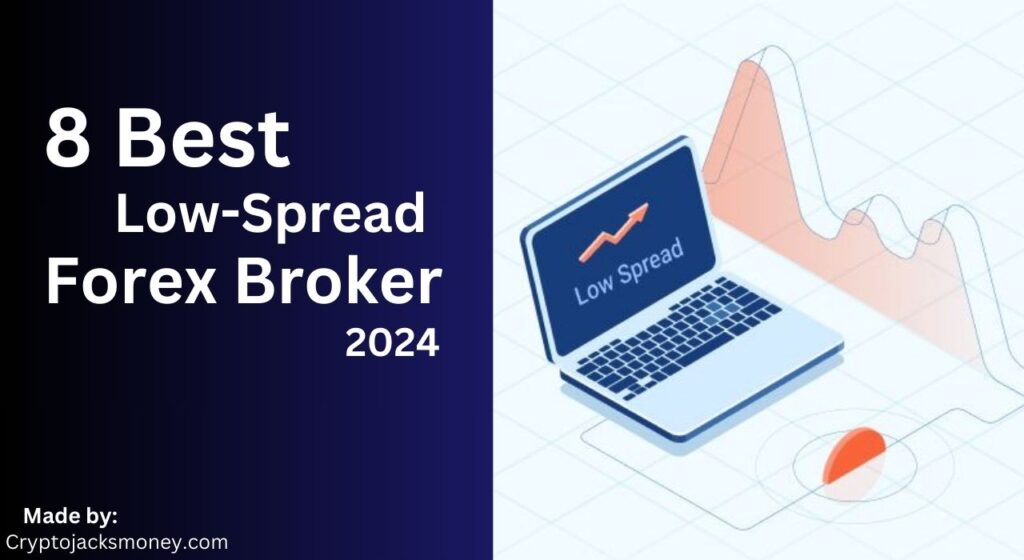ETFs vs Stocks: Which is the Best For You?
Today in our blog post, we will Discuss with you Stocks vs ETFs are better.
If you’re just getting started with investing, you may be wondering if ETFs or Stocks: Which is the Best For You? Well, that depends, on what Stocks can be an excellent investment in some cases, while ETFs can be superior in others.
However, for inexperienced investors, exchange-traded funds alleviate many problems and provide a simple approach to achieving significant returns, making them an excellent starting point.
ETFs vs Stocks: About
What are ETFs?
An exchange-traded fund (ETF) is a portfolio of investments such as stocks or bonds. Exchange-traded funds (ETFs) allow you to invest in a large number of assets at once, and they frequently have cheaper fees than other forms of funds. ETFs are also easier to trade.
However, ETFs, like any other financial instrument, do not provide a one-size-fits-all solution. Evaluate them on their own merits, including management charges and commission fees (if applicable), ease of purchase or sale, integration into your existing portfolio, and investment performance.
Exchange-traded funds may move like stocks, although they are more closely related to mutual funds and index funds, which can differ significantly in terms of underlying assets and investing objectives. The following are some common types of ETFs. These ETFs are classified not by management style (passive or active), but by the sort of investments held within the ETF.
What are Stocks?
A stock is a type of security that represents a fraction of a company’s ownership. When you acquire a firm’s stock, you are purchasing a little portion of the company, known as a share.
Investors buy stock in firms that they believe will increase in value. If this occurs, the company’s stock will rise in value as well. The shares can then be resold for profit.
A shareholder is someone who owns stock in a corporation and shares in its earnings.
Some differences between stocks and ETFs.
| Aspect | ETFs | Stocks |
| Lifetime | Potentially infinite | Potentially infinite |
| Brokerage commissions | $0 | $0 |
| Potential upside | Depending on the investment, Low-high | High |
| Dividends | Yes | Yes |
| Diversification | High | Low |
| Expense Ratio | Yes | No |
| Range of Asset Classes | ||
| Transaction Fee or Commission | Generally subject to a transaction fee | Generally subject to a transaction fee |
| Risk | Low-high | High |
Advantages and Disadvantages of ETFs
Here are the Advantages and Disadvantages of investing in ETFs compared to individual stocks:
Advantages of ETFs
- Diversification: ETFs provide exposure to a diverse range of assets, which reduces the risk of investing in individual stocks or bonds.
- Liquidity: ETFs trade on stock exchanges like individual stocks, providing investors with the flexibility to buy and sell shares throughout the trading day at market prices.
- Lower risk exposure: Investing in ETFs spreads risk across multiple stocks or assets, mitigating the impact of poor performance from any single holding.
- Flexibility: ETFs cover a wide range of asset classes, including stocks, bonds, commodities, and even specific sectors or regions, giving investors the flexibility to tailor their portfolios to their investment objectives.
- Tax efficiency: Due to their unique structure, ETFs generally have lower capital gains distributions compared to mutual funds, resulting in potentially lower tax liabilities for investors.
- Cost-effectiveness: ETFs often have lower expense ratios compared to actively managed mutual funds and can be more cost-efficient than buying a diversified portfolio of individual stocks.
- Risk management: ETFs offer risk management tools such as stop-loss orders and options trading, allowing investors to protect their investments and manage downside risk more effectively than individual stocks.
- Dividend reinvestment: Many ETFs automatically reinvest dividends back into the fund, allowing investors to compound their returns over time without the need for manual reinvestment, a feature not typically available with individual stocks.
Disadvantages of ETFs
Less Diversification: Because of the market index’s restrictive selection of shares, ETF investors may be limited to large-cap firms in certain sectors or overseas stocks. Certain ETF investors who lack exposure to mid-and small-cap companies may be unable to take advantage of possible growth prospects.
Limited individual company exposure: ETFs provide exposure to a basket of securities, which means investors may miss out on potential gains from individual stocks that outperform the broader market.
Management expenses: Although ETFs are often less expensive than actively managed funds, they still contain management fees, which can reduce returns over time, particularly for long-term investors.
Tax consequences: ETF investors may incur capital gains taxes when the fund sells underlying securities, which can impact after-tax returns, particularly for actively traded ETFs.
Tracking error: Before you buy an ETF, you should know what underlying stocks it tracks. Once this is done, you must tolerate some “tracking error,” which means that the ETF will not perform exactly like its underlying equities or benchmarks.
Advantages and Disadvantages of Stocks
Here are the Advantages and Disadvantages of investing in Stocks compared to ETFs:
Advantages of Stocks
Easy To Invest: Investing in stocks has grown more accessible in recent years, largely to technology improvements and the proliferation of online brokerage platforms. Investors can buy and sell stocks with a few clicks, making it an easy option for inexperienced investors. This ease of access enables individuals to begin growing their investment portfolios without the requirement for substantial financial knowledge.
Portfolio growth with the economy: One of the main benefits of stock investing is the chance to expand with the economy. As companies grow and become more profitable, stock prices rise. Stock prices have historically correlated with economic performance. When the economy grows, stock values rise, allowing investors to grow their portfolios.
Potential for Higher Returns: Investing in individual stocks provides the opportunity for potentially higher returns compared to ETFs, especially if you choose well-performing companies or growth stocks.
Control Over Portfolio: With individual stocks, you have complete control over your portfolio composition, allowing you to tailor it to your risk tolerance, investment goals, and personal preferences.
Dividend Income: Some individual stocks pay dividends, providing a steady income stream for investors. You can selectively invest in dividend-paying companies to generate passive income.
Ability to Capitalize on Market Opportunities: Individual stocks allow investors to respond swiftly to market news, events, or opportunities, such as mergers and acquisitions or new product launches, potentially capitalizing on inefficiencies or short-term trends.
Disadvantages of Stocks
Higher risk: Investing in individual stocks exposes investors to higher levels of risk compared to diversified ETFs, as the performance of a single company can have a significant impact on the value of the investment.
Volatility: Individual stocks tend to be more volatile than diversified ETFs, making them prone to sharp price fluctuations in response to company-specific news or market sentiment.
Liquidity Risk: Some stocks may have low liquidity, making it difficult to buy or sell shares at desired prices, especially during periods of market stress, whereas ETFs often have significant liquidity due to their constant trading on exchanges.
Tax Liability: Investors frequently underestimate the tax ramifications of stock investing. Gains from stock sales may be subject to capital gains taxes, depending on the holding time and kind of account in which the stock is held. Understanding these tax standards is critical for maximizing your returns and avoiding unexpected tax liabilities.
Lack of Diversity: Stock investors are in danger of concentration in a single firm or industry, whereas ETFs provide broad diversification across several securities, mitigating the impact of bad performance from a single holding.
Which is the Best of your Portfolio?
Consider risk and reward while choosing stocks or ETFs. When returns are far from the mean, stock picking outperforms ETFs. With stock-picking, you can use industry or stock knowledge to your advantage.
ETFs have two benefits over stocks. First, an ETF may be best when sector stock returns have a tight dispersion around the mean. Second, an ETF is best if company knowledge doesn’t help.
When picking stocks or ETFs, you must stay current on the sector or stock to comprehend the investment basics. Good effort shouldn’t go to waste over time. While researching stocks and ETFs is crucial, so is finding the right broker.
Read More: How To Buy Sana Biotechnology Inc. Stock In 2024: Best Guide For Beginners
FAQs
Is it better to invest in stocks or ETFs?
ETFs’ diverse holdings reduce risk and volatility, making them safer to own than stocks. What an ETF invests in determines its return. ETF returns are the weighted average of their holdings.
Are stocks safer than ETFs?
A single ETF may contain dozens or hundreds of different stocks, bonds, or nearly any other type of investable asset. Because ETFs are more diverse, they have a lower risk profile than equities.
Disclaimer:- Before making an investment decision, all investors should independently research various investment ideas. Furthermore, investors should be aware that the historical success of an investment product does not guarantee future price appreciation.



